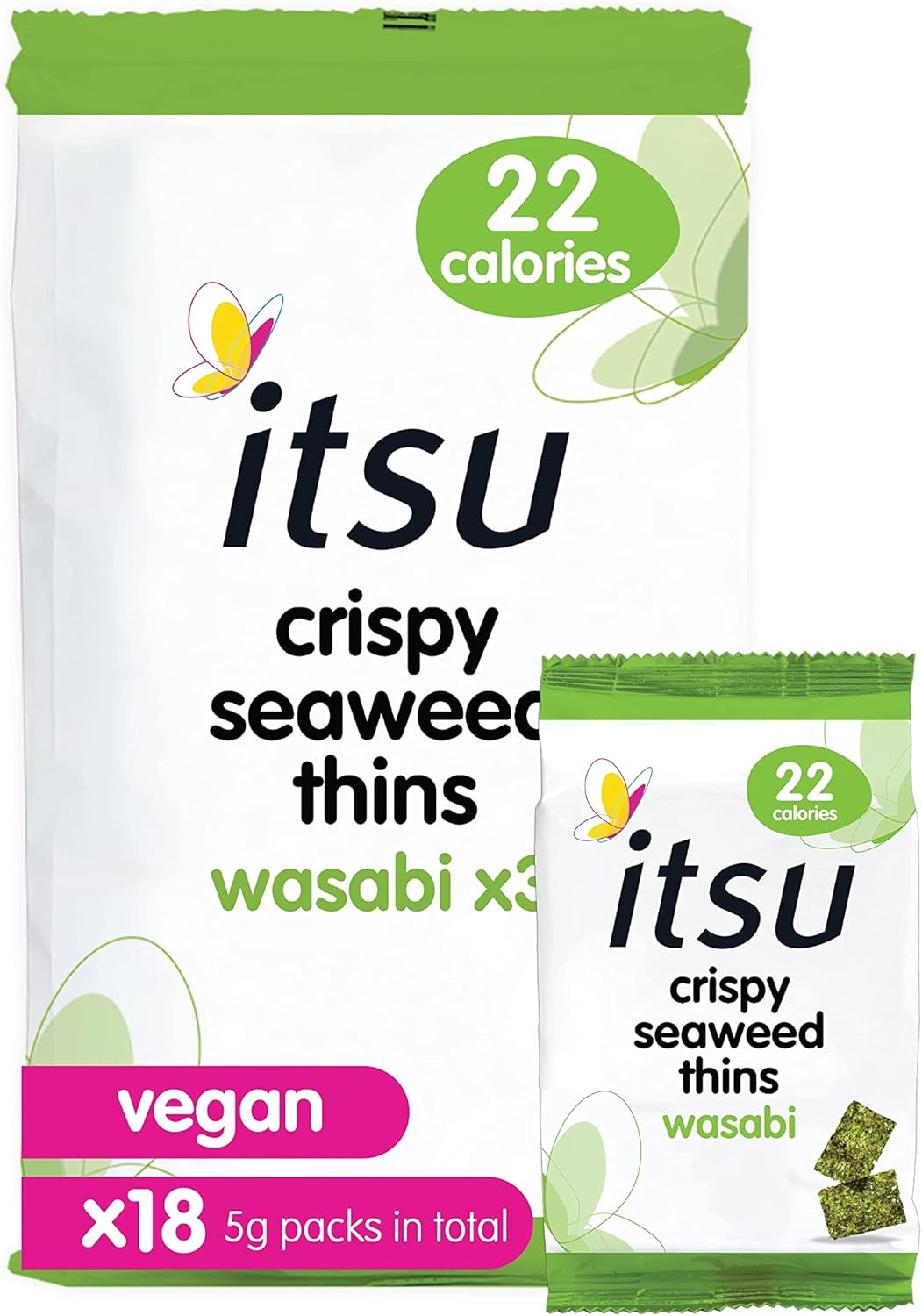About this deal
Preliminary test-tube and animal studies suggest that wasabi may also help treat peptic ulcers caused by H. pylori ( 4, 5, 6). What’s more, one study found that wasabi leaf extract prevented weight gain in mice on a high-fat, high-calorie diet by hindering the growth and production of fat cells ( 15).
There are thousands of types of seaweed, and humans currently use about 145 of them for everything from food to anti-aging facial masks. This plant is an excellent source of iodine, a micronutrient critical for thyroid health. Seaweed is also thought to help boost metabolism and improve gut health, increasing the growth of good bacteria in the digestive tract. Though promising, these results were obtained from animal and test-tube studies. More research is needed to determine wasabi leaf extract’s effects on humans. summary Roleda, M Y et al (2018) Variations in polyphenol and heavy metal contents of wild-harvested and cultivated seaweed bulk biomass: Health risk assessment and implication for food applications. Food Control 95: 121-134 For the wakame dressing, in a bowl dissolve the dashi granules in the warm water and mix with the rest of the dressing ingredients. Add the wakame seaweed and the cucumber and mix together well with the dressing. Set aside in the fridge to chill.
But…Does Seaweed Taste Good?
Low iodine intakes are common in some population groups, including teenagers, women and mums-to be. Seaweed is one of the richest sources of this nutrient and while it’s not commonly consumed in the UK at the moment, more and more seaweeds – and products containing them – are becoming available. So could seaweed be a solution for boosting intakes? Do UK guidelines around eating it need to be reconsidered? Registered dietitian Juliette Kellow gives the lowdown… Consuming wasabi can decongest and disinfect your respiratory tract thanks to gaseous allyl isothiocyanate present. Studies also show that isothiocyanate has anti-inflammatory properties that can prohibit infections or fight asthma. Another concern relates to seaweed containing heavy metals such as inorganic arsenic (the toxic carcinogenic form), mercury, cadmium and lead that are harmful to health 20,21. It’s an area that’s currently being researched with funding from EFSA with a view to creating a global review of levels of these contaminants in seaweed and potentially setting maximum levels for seaweed in the future [22]. However, consumption of seafood in the UK is low. Adults of working age eat just one portion of fish and less than half a portion of oily fish a week; children aged 11-18 years have just over half a portion of fish a week and only eat one portion of oily fish every seven weeks 1! It means seafood provides just one tenth of the iodine in our diet, despite being a good source of this nutrient.
Studies have also looked at the impact seaweed itself may have on our overall health and wellbeing. Much of this has been based on Asian populations, with studies suggesting seaweed may reduce the risk of ischaemic heart disease and mortality from stroke, probably due to lowering blood pressure and lipids [21] . Long story short: Include wasabi into your diet. It will increase nutrient intake and positively affect your overall health. Bad for gastritis– isothiocyanate might irritate your stomach lining and may worsen existing gastritis. Studies estimated that horseradish and wasabi contain similar amounts of ITCs, with wasabi providing 971–4357 mg per pound (2,137–9,585 mg per kg), compared with 682–4091 mg per pound (1,500–9,000 mg per kg) for horseradish ( 16).
Some research suggests that the edible leaves of the wasabi plant contain compounds that may suppress the growth and formation of fat cells ( 12).
Dry ingredients absorb all the delicious wet seasonings (soy sauce and mirin), and then become dry. So the ingredients will be flavored. More than a condiment, wasabi was used for its various medicinal properties – says The Honzo Waymo, Japan’s oldest botanical dictionary. Believed to be compiled in 918, it has numerous references to wasabi’s use as an antidote for food poisoning. And, centuries later, modern-day science has proved this to be true.Heading out the door? Read this article on the new Outside+ app available now on iOS devices for members!
 Great Deal
Great Deal 